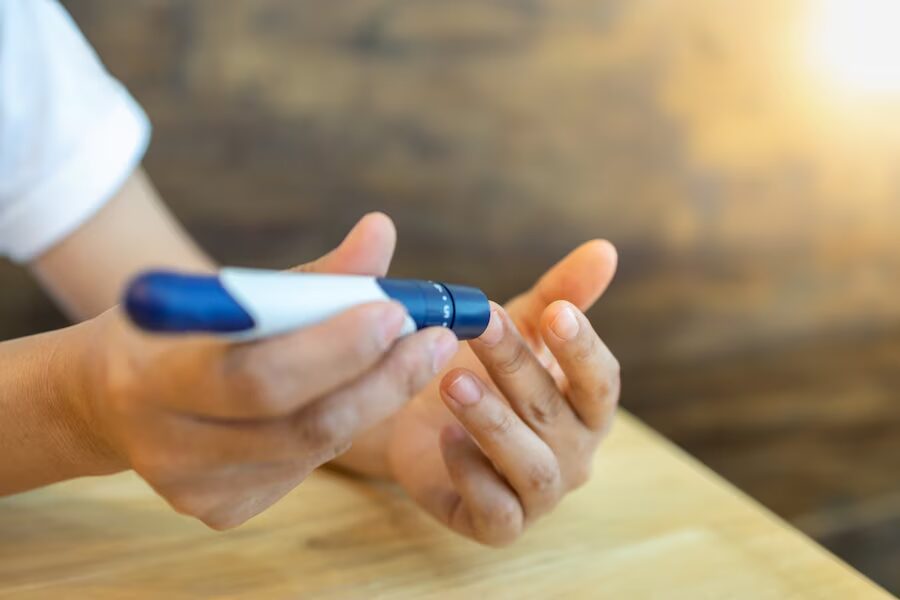Stress management plays a crucial role in the natural reversal of diabetes. Chronic stress can disrupt glucose metabolism and insulin sensitivity, making it harder to control blood sugar levels. By incorporating stress-reducing practices such as mindfulness, exercise, and proper sleep, individuals can improve their overall health and enhance their body’s ability to regulate glucose. Managing stress effectively not only helps in stabilizing blood sugar but also supports a more balanced lifestyle, contributing to the natural reversal of diabetes.
Understanding the Link Between Stress and Diabetes
Chronic stress triggers the release of hormones like cortisol, which can elevate blood sugar levels and contribute to insulin resistance. This persistent stress-response cycle makes diabetes management more challenging, highlighting the need for effective stress management strategies to break this cycle and support natural diabetes reversal.
Chronic stress has a profound impact on diabetes management due to its influence on hormonal balance and glucose regulation. When the body is under stress, it releases hormones such as cortisol and adrenaline, which prepare the body for a “fight-or-flight” response. These hormones can increase blood sugar levels by stimulating the liver to release glucose and by reducing insulin sensitivity, making it harder for cells to absorb glucose. Over time, this persistent elevation in blood sugar levels can contribute to the development and worsening of diabetes. Moreover, stress can lead to unhealthy coping mechanisms, such as poor dietary choices and inactivity, which further exacerbate diabetes.
Mindfulness Techniques for Better Blood Sugar Control
Mindfulness practices such as meditation and deep-breathing exercises can significantly reduce stress levels.

By promoting relaxation and mental clarity, these techniques help lower cortisol levels and improve insulin sensitivity, leading to better blood sugar control and aiding in the natural reversal of diabetes.
Mindfulness techniques, such as meditation and deep-breathing exercises, can play a transformative role in managing stress and improving blood sugar control. By focusing on the present moment and cultivating a sense of calm, these practices help to lower cortisol levels, the stress hormone that can negatively impact glucose metabolism. Meditation, for example, has been shown to reduce stress and anxiety, leading to more stable blood sugar levels.
The Impact of Exercise on Stress and Diabetes
Regular physical activity is a powerful tool for managing stress and improving blood sugar levels. Exercise not only helps lower cortisol but also enhances insulin sensitivity and glucose uptake by muscles. Integrating a consistent exercise routine into daily life supports both stress reduction and diabetes management.
Benefits of Exercise on Cortisol Levels
Regular physical activity helps lower cortisol levels, the stress hormone that can negatively impact blood sugar control. By reducing cortisol, exercise mitigates the adverse effects of stress on glucose metabolism, making it easier to maintain stable blood sugar levels.
Enhancing Insulin Sensitivity Through Exercise
Exercise improves insulin sensitivity, allowing the body to use insulin more effectively. This enhancement helps manage blood sugar levels more efficiently and reduces the risk of developing insulin resistance.
Boosting Glucose Uptake by Muscles
Physical activity promotes glucose uptake by muscles, which helps lower blood sugar levels. As muscles use glucose for energy, exercise supports better blood sugar regulation and contributes to overall diabetes management.
The Role of Consistency in Exercise Routines
Maintaining a consistent exercise routine is key to reaping long-term benefits. Regular workouts not only help manage stress but also ensure sustained improvements in blood sugar control and overall health.
Combining Exercise with Stress Management
Integrating exercise with other stress management techniques, such as mindfulness or proper sleep, amplifies its benefits. This holistic approach supports both stress reduction and effective diabetes management, contributing to better overall well-being.
The Role of Sleep in Stress Reduction and Diabetes Management
Quality sleep is essential for stress management and overall health. Poor sleep can increase stress hormones and disrupt glucose metabolism, making diabetes harder to manage. Prioritizing good sleep hygiene helps regulate stress levels and supports the body’s natural ability to control blood sugar.
Quality sleep is fundamental for managing stress and maintaining optimal blood sugar levels. When we sleep, our bodies repair themselves and regulate important processes, including hormone production. Poor sleep or sleep disorders can lead to increased levels of stress hormones like cortisol, which can elevate blood sugar levels and impair insulin sensitivity. This disruption makes it harder to manage diabetes effectively. Prioritizing good sleep hygiene—such as maintaining a consistent sleep schedule, creating a restful environment, and avoiding stimulants before bedtime—can help reduce stress, stabilize hormone levels, and improve glucose metabolism. By ensuring adequate and restful sleep, individuals can better support their overall health and enhance their ability to manage diabetes naturally.
Healthy Eating as a Stress-Reducing Strategy
A balanced diet rich in whole foods, including fruits, vegetables, and lean proteins, can help manage stress and stabilize blood sugar levels. Nutrient-dense foods support overall health, reduce inflammation, and enhance the body’s stress response, contributing to the natural reversal of diabetes.
Building a Supportive Social Network
Emotional support from friends, family, and support groups plays a vital role in stress management. Engaging with a supportive network can provide encouragement, reduce feelings of isolation, and help manage stress more effectively, which in turn benefits diabetes control and contributes to its natural reversal.
Conclusion
Effective stress management is pivotal in the journey toward natural diabetes reversal. By incorporating techniques such as mindfulness, exercise, and proper sleep, individuals can significantly improve their blood sugar levels and overall well-being. Stress reduction not only helps regulate glucose metabolism but also supports the body’s ability to manage insulin more efficiently.
Dr. Shumard in San Marcos, CA, is dedicated to guiding individuals on their path to diabetes reversal through comprehensive stress management strategies. Embracing these practices can empower you to take control of your health and enhance your quality of life.